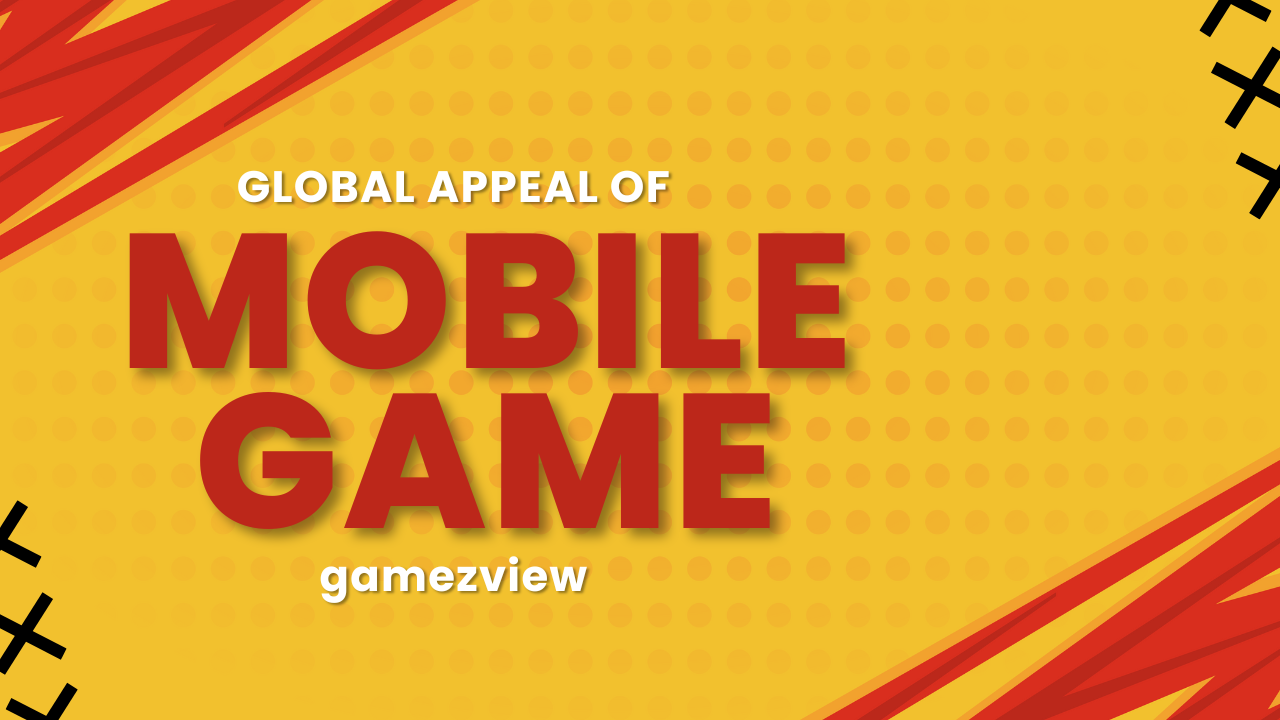Mobile gaming has come a long way from the simple, monochromatic games of the 1990s. Initially, games like Snake on Nokia phones provided a rudimentary form of entertainment. However, as technology advanced, so did the capabilities of mobile devices. The introduction of smartphones brought about a significant shift, enabling the development of more sophisticated and visually appealing games.
The advent of app stores revolutionized the distribution of mobile games, making it easier for developers to reach a broad audience. This, combined with advancements in mobile hardware and software, has allowed mobile games to rival, and in some cases surpass, the quality of games on traditional platforms. Mobile games now boast impressive graphics, complex storylines, and immersive gameplay, attracting a diverse and dedicated player base.
Key Factors Driving Mobile Gaming Popularity
Several factors contribute to the widespread appeal of mobile gaming. One of the most significant is the accessibility of mobile devices. Unlike traditional gaming consoles or PCs, which require substantial investments, almost everyone has access to a smartphone. This has democratized gaming, making it accessible to people of all ages and economic backgrounds.
Another factor is the convenience of mobile gaming. Players can enjoy games on the go, filling small pockets of time throughout their day. Whether waiting for a bus or taking a break at work, mobile games offer quick and engaging entertainment. Furthermore, the diversity of games available ensures there is something for every interest, from puzzle games to action-packed adventures.
The Impact of Technology on Mobile Gaming
Technological advancements have played a crucial role in the evolution of mobile gaming. Improvements in mobile processors, graphics capabilities, and battery life have made it possible to develop games with high-definition graphics and complex mechanics. Augmented reality (AR) and virtual reality (VR) are now becoming more prevalent in mobile games, providing players with immersive experiences that were once the domain of high-end gaming consoles.
Additionally, the rise of cloud gaming has begun to impact mobile gaming. With cloud gaming, players can stream games directly to their mobile devices without the need for powerful hardware. This not only makes high-quality games more accessible but also allows for cross-platform play, blurring the lines between mobile and traditional gaming.
Demographic Trends in Mobile Gaming
Mobile gaming appeals to a broad demographic, cutting across age, gender, and geographic boundaries. Studies show that mobile gamers are almost equally divided between men and women, with a significant portion of players being adults. This contrasts with the stereotype of gamers being predominantly young males.
The popularity of mobile gaming is also evident across various regions. In countries like China and India, mobile gaming has seen exponential growth, driven by widespread smartphone adoption and affordable data plans. Meanwhile, in Western markets, mobile gaming continues to attract a large audience, contributing to its status as a global phenomenon.
The Role of Social Media in Mobile Gaming
Social media has significantly influenced the mobile gaming landscape. Platforms like Facebook, Instagram, and TikTok have become key channels for game promotion, community building, and player engagement. Many mobile games integrate social features, allowing players to share their progress, compete with friends, and participate in community events.
The viral nature of social media can propel games to instant popularity. For instance, games like Candy Crush and Among Us have gained widespread attention and a massive player base through social media buzz and influencer endorsements. This symbiotic relationship between mobile gaming and social media continues to drive the growth of the industry.
The Influence of Mobile Gaming on Traditional Gaming
Mobile gaming has had a profound impact on the traditional gaming industry. The success of mobile games has forced console and PC game developers to rethink their strategies, leading to a rise in mobile versions of popular games and the adoption of mobile-first design principles.
Moreover, the monetization models pioneered by mobile games, such as free-to-play with in-app purchases, have influenced the broader gaming industry. These models have proven incredibly lucrative and have led to a shift in how games are developed and marketed, with an increasing focus on player retention and engagement.
Mobile Gaming as a Social Experience
One of the most appealing aspects of mobile gaming is its social component. Many mobile games are designed to be played with or against other people, fostering a sense of community and competition. Multiplayer games, in particular, have created virtual spaces where players can connect, collaborate, and compete with others worldwide.
Games like Pokémon GO and Clash of Clans have demonstrated the potential of mobile games to bring people together. Whether through cooperative gameplay or competitive tournaments, mobile gaming offers a platform for social interaction that extends beyond the game itself.
Economic Impact of Mobile Gaming
The economic impact of mobile gaming is substantial. The industry generates billions of dollars in revenue each year, contributing significantly to the global economy. Mobile games are not only a major source of income for developers and publishers but also create opportunities for a wide range of supporting industries, including advertising, technology, and retail.
In-app purchases, advertising revenue, and subscription models have all proven to be effective monetization strategies for mobile games. These revenue streams have made mobile gaming a highly profitable venture and have attracted significant investment from both traditional gaming companies and new entrants to the market.
Future Trends in Mobile Gaming
The future of mobile gaming looks promising, with several exciting trends on the horizon. One of the most anticipated developments is the integration of more advanced AR and VR technologies, which will enhance the immersive experience of mobile games. Additionally, the growth of 5G networks will enable faster, more reliable gaming experiences, further blurring the lines between mobile and console gaming.
Another trend to watch is the rise of blockchain and cryptocurrency in mobile gaming. These technologies offer new opportunities for game developers to create decentralized, player-driven economies and enhance the security and transparency of in-game transactions.
Challenges and Opportunities in Mobile Gaming
While the mobile gaming industry continues to grow, it faces several challenges. One of the biggest is the intense competition, which makes it difficult for new games to stand out. Additionally, issues such as data privacy, security, and the ethical implications of in-app purchases are becoming increasingly important.
However, these challenges also present opportunities for innovation. Game developers who can navigate these issues and create unique, engaging experiences will be well-positioned to succeed in the evolving mobile gaming landscape. Furthermore, the growing popularity of mobile gaming in emerging markets presents significant opportunities for expansion and growth.
Frequently Asked Questions
1. What makes mobile gaming so popular?
Mobile gaming’s popularity is driven by its accessibility, convenience, and the wide variety of games available. Almost everyone has a smartphone, making it easy for people to play games anytime, anywhere.
2. How has mobile gaming evolved over the years?
Mobile gaming has evolved from simple games like Snake to complex, high-quality games with advanced graphics and gameplay. This evolution has been fueled by technological advancements in mobile devices and app distribution platforms.
3. What are the key demographic trends in mobile gaming?
Mobile gaming attracts a diverse demographic, including a nearly equal split between male and female players and significant participation from adults. It is popular worldwide, particularly in regions with high smartphone adoption.
4. How do social media platforms impact mobile gaming?
Social media platforms play a crucial role in promoting mobile games, building communities, and enhancing player engagement. Viral marketing on social media can rapidly boost a game’s popularity.
5. What are the economic benefits of mobile gaming?
Mobile gaming generates billions in revenue, creating economic opportunities for developers, advertisers, and various supporting industries. It is a significant contributor to the global economy.
6. What future trends are expected in mobile gaming?
Future trends in mobile gaming include the integration of AR and VR technologies, the growth of 5G networks, and the adoption of blockchain and cryptocurrency for in-game transactions.
7. How does mobile gaming compare to traditional gaming?
Mobile gaming is more accessible and convenient than traditional gaming, with a broader demographic reach. It has influenced traditional gaming by introducing new monetization models and expanding the gaming audience.
8. What challenges does the mobile gaming industry face?
The mobile gaming industry faces challenges such as intense competition, data privacy concerns, and the ethical implications of in-app purchases. Addressing these issues is crucial for sustained growth.
9. How has technology impacted mobile gaming?
Advancements in mobile technology have enabled the development of high-quality games with advanced graphics and gameplay. Technologies like AR, VR, and cloud gaming are enhancing the mobile gaming experience.
10. Why is mobile gaming considered a social experience?
Mobile gaming often includes multiplayer and social features, allowing players to connect, collaborate, and compete with others worldwide. This social interaction is a key aspect of its appeal.
Mobile gaming has undeniably transformed the entertainment landscape, evolving from simple, casual games to complex, immersive experiences that rival traditional gaming platforms. Its global appeal is driven by several factors, including accessibility, convenience, and the rapid pace of technological advancement. As mobile technology continues to evolve, the potential for mobile gaming to innovate and grow is immense.
The success of mobile gaming is a testament to its ability to adapt and cater to a diverse audience. The integration of social features, the influence of social media, and the economic impact of mobile gaming underscore its significance in the modern world. Mobile gaming has not only democratized access to gaming but has also created a vibrant, dynamic ecosystem that continues to push the boundaries of what is possible.
Looking ahead, the future of mobile gaming is bright, with exciting trends such as AR, VR, and blockchain poised to shape the next generation of games. While challenges remain, the opportunities for growth and innovation are vast. Developers who can navigate these challenges and leverage new technologies will be at the forefront of the mobile gaming revolution.



